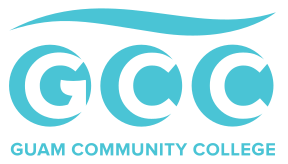Emergency Management graduates will be able to apply basic emergency management skills in the event of natural and person-made disasters. Graduates will be able to implement the four major areas of emergency, namely, mitigation, preparation, response, and recovery. The Emergency Management program utilizes the Emergency Management Institute’s Independent Study (IS) courses to prepare graduates to apply leadership skills, to communicate effectively, to solve problems, to plan, to work as a team, to operate within the legal system and governmental framework for emergency management, to analyze risks and hazards, and to manage resources efficiently.
The Emergency Management program’s major requirements are adopted and derived from EMI’s Independent Study program. GCC’s Emergency Management program will adhere to the latest IS offerings to ensure that students learn what is relevant and most up-to-date information and skills.
Approved college credits must be an approved EMI course and subject to the approval by the academic advisor or department chair. As such, Certificate and/or Associate degree students in EM must obtain prior approval by EM academic advisor or department chair.
Program Student Learning Outcomes (SLOs):
Upon successful completion of the AS in Emergency Management program, students will be able to:
The Emergency Management program’s major requirements are adopted and derived from EMI’s Independent Study program. GCC’s Emergency Management program will adhere to the latest IS offerings to ensure that students learn what is relevant and most up-to-date information and skills.
Approved college credits must be an approved EMI course and subject to the approval by the academic advisor or department chair. As such, Certificate and/or Associate degree students in EM must obtain prior approval by EM academic advisor or department chair.
Program Student Learning Outcomes (SLOs):
Upon successful completion of the AS in Emergency Management program, students will be able to:
- Coordinate functions between local and federal law enforcement in response to disaster events.
- Analyze the functions of the Emergency Operations Center and National Incident Management System.
- Evaluate hazards and risks of emergency situations.
- Apply critical thinking skills during table top exercises
| General Education Requirements | ||
| Course | Course Name | Credits |
| EN___ | English Requirement | 3-4 |
| MA___ | Mathematics Requirement | 3 |
| Literacy for Life Requirement | 3 | |
| Humanities & Fine Arts Requirement | 3-4 | |
| SI___ | Natural & Physical Sciences Requirement | 4 |
| Social & Behavorial Sciences Requirement | 3 | |
| Total | 19-21 | |
| Major Requirements | ||
| Course | Course Name | Credits |
| EMI approved courses | 29 | |
| CJ102 | First Responder | 3 |
| CJ104 | Dynamics Of Substance Abuse | 3 |
| CJ206 | Social Values & The Criminal Justice Process | 3 |
| CJ292 | Criminal Justice Practicum | 3 |
| Program Total | 60-62 | |
Course Sequence by Semester
| Year 1 | |||||
| Semester 1 | Semester 2 | ||||
| Course # | Course Name | Credits | Course # | Course Name | Credits |
| EN___ | English Composition Requirement | 3-4 | Humanities & Fine Arts Requirement | 3-4 | |
| MA____ | Mathematics Requirement | 3 | Social Science Requirement | 3 | |
| CJ102 | First Responder | 3 | CJ104 | Dynamics of Substance Abuse | 3 |
| Total | 9-10 | Total | 9-10 | ||
| Year 2 | |||||
| Semester 3 | Semester 4 | ||||
| Course # | Course Name | Credits | Course # | Course Name | Credits |
| Natural & Physical Science Requirement | 4 | CJ292 | Criminal Justice Practicum | 3 | |
| Literacy for Life | 3 | EMI approved courses | 29 | ||
| CJ206 | Social Values & The Criminal Justice Process | 3 | |||
| Total | 10 | Total | 32 | ||
| PROGRAM TOTAL | 60-62 | ||||
Category


